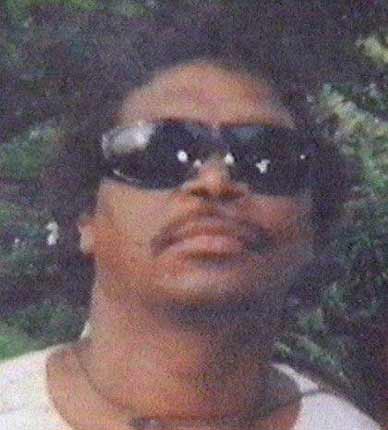Aborigine race row deepens as more officers are exonerated

Your support helps us to tell the story
From reproductive rights to climate change to Big Tech, The Independent is on the ground when the story is developing. Whether it's investigating the financials of Elon Musk's pro-Trump PAC or producing our latest documentary, 'The A Word', which shines a light on the American women fighting for reproductive rights, we know how important it is to parse out the facts from the messaging.
At such a critical moment in US history, we need reporters on the ground. Your donation allows us to keep sending journalists to speak to both sides of the story.
The Independent is trusted by Americans across the entire political spectrum. And unlike many other quality news outlets, we choose not to lock Americans out of our reporting and analysis with paywalls. We believe quality journalism should be available to everyone, paid for by those who can afford it.
Your support makes all the difference.Two decades ago, Queensland – then governed by an ultra-right-wing premier, Joh Bjelke-Petersen, with the help of a corrupt and brutal police force – was known as Australia's "Deep North". Now some are wondering if much has changed, following a decision not to take disciplinary action against officers involved in the case of an Aboriginal man who died in police custody.
Arrested for drunkenness and swearing, 36-year-old Mulrunji Doomadgee bled to death on the floor of a police cell on Palm Island, a former Aboriginal penal colony off the Queensland coast, in 2004. He had four broken ribs and a liver "virtually cleaved in two", the kind of injuries usually seen only after a high-speed car crash.
An inquest found that Senior Sergeant Chris Hurley caused the injuries by punching Mr Doomadgee in the stomach during a struggle. In 2007, in a bitter blow to the dead man's family, Sgt Hurley was acquitted of manslaughter.
This week the family's anguish was compounded when Queensland Police announced that no action will be taken against six other officers. The six were not involved in Mr Doomadgee's death, but investigated Sgt Hurley's conduct. They included two friends of his, whom he picked up from the airport when they flew into Palm Island to begin their inquiry, before cooking them a meal at his home and sharing a few beers.
Queensland's anti-corruption watchdog, the Crime and Misconduct Commission (CMC) – set up after a Royal commission in 1989 found corruption in the police force and state government – denounced the investigation and a subsequent internal review as a cover-up.
The case was then handed to the Deputy Commissioner, Kathy Rynders, who concluded the officers should face only "managerial guidance". The decision outraged not only the CMC, whose chairman, Martin Moynihan, called it "incomprehensible", but also Mr Doomadgee's family, still waiting for justice six years on. To many, the legal and political saga symbolises the inequities and racism still faced by indigenous Australians. The mayor of Palm Island, Alf Lacey, said the failure to discipline officers had set back relations between police and Aboriginal people by a decade.
The death of Mr Doomadegee, who had never been in trouble with the law, sparked riots on Palm Island. Those involved were swiftly jailed. Mr Lacey observed last year: "If those [investigating] police did wrong, they should be put in jail, just like the rioters. Black or white, what do you say when the system supposed to protect you fails you?"
Thirty-four police officers received bravery awards following the riots. On Palm Island, meanwhile, the community is still grieving. Mr Doomadgee's only son, Eric, hanged himself in 2006.
Sgt Hurley is now an acting inspector on Queensland's Gold Coast. One of the officers involved in the investigation – which the coroner, Brian Hine, found riddled with lies – has also been promoted. Another has retired on medical grounds; a third is on unpaid leave. The other three are still in the Queensland force. The state Premier, Anna Bligh, said this week that the police disciplinary process was being reviewed.
Join our commenting forum
Join thought-provoking conversations, follow other Independent readers and see their replies
Comments